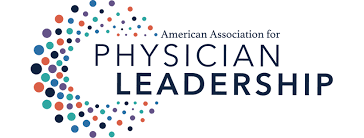Abstract:
Healthcare is a complex interplay of structures and processes organized in a manner that optimizes resources and outcomes. Physicians leaders must understand how to work within this structure and to ensure they are meeting the needs of their patients and teams. In this issue of the PLJ, you will find three articles that address major components of this interplay of structure, process, outcome, and resource. As you read through this collection of articles, which we have carefully selected for this issue, I encourage you to consider their relevance to the work you are doing with your teams every day — not just for the purposes of informing your own leadership strategies, but also in terms of the ways you can help to inform your colleagues, staff, and others.
Healthcare is a complex interplay of structures and processes organized in a manner that optimizes resources and outcomes. Physicians leaders must understand how to work within this structure and to ensure they are meeting the needs of their patients and teams. In this issue of the PLJ, you will find three articles that address major components of this interplay of structure, process, outcome, and resource.
First, we have included a discussion article examining the Ethics in Patient Referrals Act enacted in 1988, also known as the Stark Law. This legislation is designed to prohibit physicians or their immediate family members who have a financial relationship with a healthcare entity from making Medicare referrals to those entities for the provision of designated health services.
Despite several “exceptions” that permit legitimate ownership interests, compensation arrangements, and forms of remuneration, the law is a major hurdle in the path to achieving value-based healthcare reforms. This article is a must read for all physician leaders and was initially released online at physicianleaders.org/news/proposed-stark-regulations-small-step-forward.
In addition, there is a discussion article describing the mental health of physicians and the many challenges they face to living healthy in a career that has complexity and inefficiency, and results in emotional drain. While considerable attention and effort are being applied to preventing provider burnout, the author suggests there may be root causes embedded in health system design that also need to be addressed to ensure physicians live healthier and avoid mental health challenges like burnout, addiction, and even suicide.
Also, you will find a research article that examines innovative models of care delivery in primary care. Despite the presence of team-based models, the integration and expansion of telehealth and virtual visits, which are intended to improve access, decrease costs, and improve quality, their effects on patient satisfaction are unknown. This research study helps us continue to have a data-driven approach to our patients as new care delivery models and approaches take hold to make our work as physicians more efficient.
As you read through this collection of articles, which we have carefully selected for this issue, I encourage you to consider their relevance to the work you are doing with your teams every day — not just for the purposes of informing your own leadership strategies, but also in terms of the ways you can help to inform your colleagues, staff, and others.
As the official journal of the American Association for Physician Leadership, PLJ provides a platform for you to share your research with members throughout the world. Now is the time to use this platform to help inspire change in healthcare, particularly as physician leaders, to improve the way we deliver care to the patients, families, and communities we serve.
Send me your thoughts at editor@physicianleaders.org. We would enjoy hearing stories about relevance of mentorship and the methods you use to assure that you and your team are well cared-for in our demanding careers.
Topics
Trust and Respect
Adaptability
Healthcare Process
Related
Get Off the Transformation TreadmillBeing Adaptable Isn’t Enough. You Have to Demonstrate It.How Leaders Can Build Stakeholder Trust in Uncertain Times


